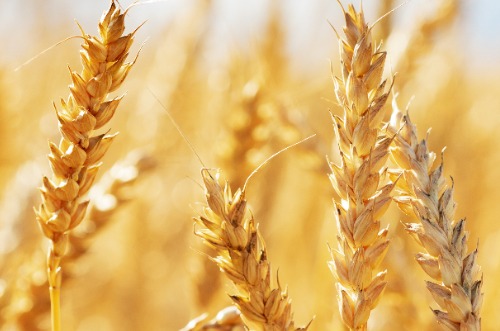Russia’s Withdrawal from the Black Sea Grain Initiative and Its Implications for Food Security

Russia’s refusal to extend the Black Sea Grain Initiative deal, which was brokered to ease food shortages and stabilize global prices after the Invasion of Ukraine, came hours before the expiration of the 60-day deal. Yet, the decision was not a surprising one.
Russia has been threatening to pull out of the agreement months leading up to the expiration date, expressing dissatisfaction that Russian interests were not being addressed. The Kremlin expresses that Western sanctions on the Russian Agricultural Bank, restrictions on insurance, and blocking assets of Russian food companies are hindering the facilitation of Russia’s food and fertilizer exports. It argued that no efforts are being made to lift the agreed upon sanctions and restrictions. It further criticized that the initial humanitarian goal of supplying Ukraine exports to food-insecure nations was instead driven by commercial gain and was being exported mostly to Western nations. It is also no coincidence that the announcement of its departure came hours after the explosion of the Kerch bridge, with President Putin calling it a “terrorist attack.”
International Response and Market Reactions
While Russia’s withdrawal was not unexpected, it faced global condemnation from world leaders and global institutes. In a letter written by the United Nations (UN) Secretary-General António Guterres, the UN Secretary-General pointed out commitments made to meet Russia’s demands. Efforts include working with Russian fertilizer companies to unfreeze assets, brokering a proposal with the European Commission for Russia Agricultural Bank to gain access to financial transactions, and setting up regulatory frameworks. He further emphasized that Russia’s export volumes of agricultural goods and fertilizers are stable and back to pre-invasion levels per Russia's Fertilizer Producers Association.
The UN and world leaders urge Russia to reconsider and extend the deal as global prices of key commodities, including wheat, have seen an immediate rise after the announcement. According to the Chicago Board of Trade, wheat futures spiked to 6.80 USD/bsc on July 17 and 6.92 USD/bsc on July 19, a 9.43% increase WoW. Corn prices went up to 5.50 USD/bsc on July 19, a 13.8% increase WoW. Uncertainty and fears of supply shortages are spiking prices, however, these prices are still significantly lower than the record-high prices seen in Mar-22 after Russia invaded Ukraine.
The Rising Risk to Global Food Security
Although it is unclear whether Russia will block Ukrainian ports, increased insurance premiums and safety concerns are making ships reluctant to enter the Black Sea, which will contribute to the rise of prices in global food commodities. Despite Russia’s sentiments, according to the Black Sea Grain Initiative Joint Steering Committee, 64% of the wheat exported from Ukraine was shipped to developing countries. Grain exports from Ukraine have been a source of relief to low-income countries in Africa and the Middle East facing extreme hunger and food security crises. Food-insecure nations dependent on these exports will be the ones hit hardest by Russia’s actions.
Will Russia Return to the Negotiating Table?
The possibility of Russia joining the agreement is not off the table. The Russian Foreign Ministry announced that Russia will consider joining the deal once “concrete results, not promises, and assurances” are made. Russia rejoining the agreement will show an immediate fall in prices. as evidenced by past events. Prices of wheat futures increased to 9.02 USD/bsc, an 8.15% WoW when Russia temporarily pulled out of the agreement in Oct-22, and prices fell to similar levels when Russia joined three days later.
However, Russia’s repeated threats, the temporary exit of the deal on Oct-22, and extending it in shorter increments from 120 days to 60 days have given Ukraine enough incentive to explore alternative suppliers and routes to export their commodities. After the exit, President Zelensky expressed in a video that the Black Sea Grain Initiative will continue even if Russia will not participate. He further elaborated that Ukraine has been approached by private ship companies and that conversation with the UN Secretary-General is in place about food shipments in the Black Sea with the cooperation of neighboring countries. However, no concrete steps or plans have been announced.
The Long-Term Shift in Global Agricultural Trade
Despite talks and rumors that Russia is willing to join the deal when implementations are made in favor of Russia, it is unclear when or if they will join. However, with the ongoing geopolitical tensions between Ukraine and Russia, relying on Russia to keep good faith in extending the Black Sea Grain Initiative is not sustainable, and this sentiment is felt around the globe. China, a major beneficiary of Ukraine grains, has announced its self-sufficiency and food security plans of growing 90% of its wheat, corn, and soybean by 2032. This development was largely influenced by the uncertainty brought on by the war. Nations in Africa also face the reality of having to deal with their dependency on foreign aid.
Russia weaponizing the Black Sea Grain Initiative for leverage may lose effectiveness with diversifying global supply. While the world waits for further developments, low-income nations will face the brunt of the effects of Russia’s decision.



